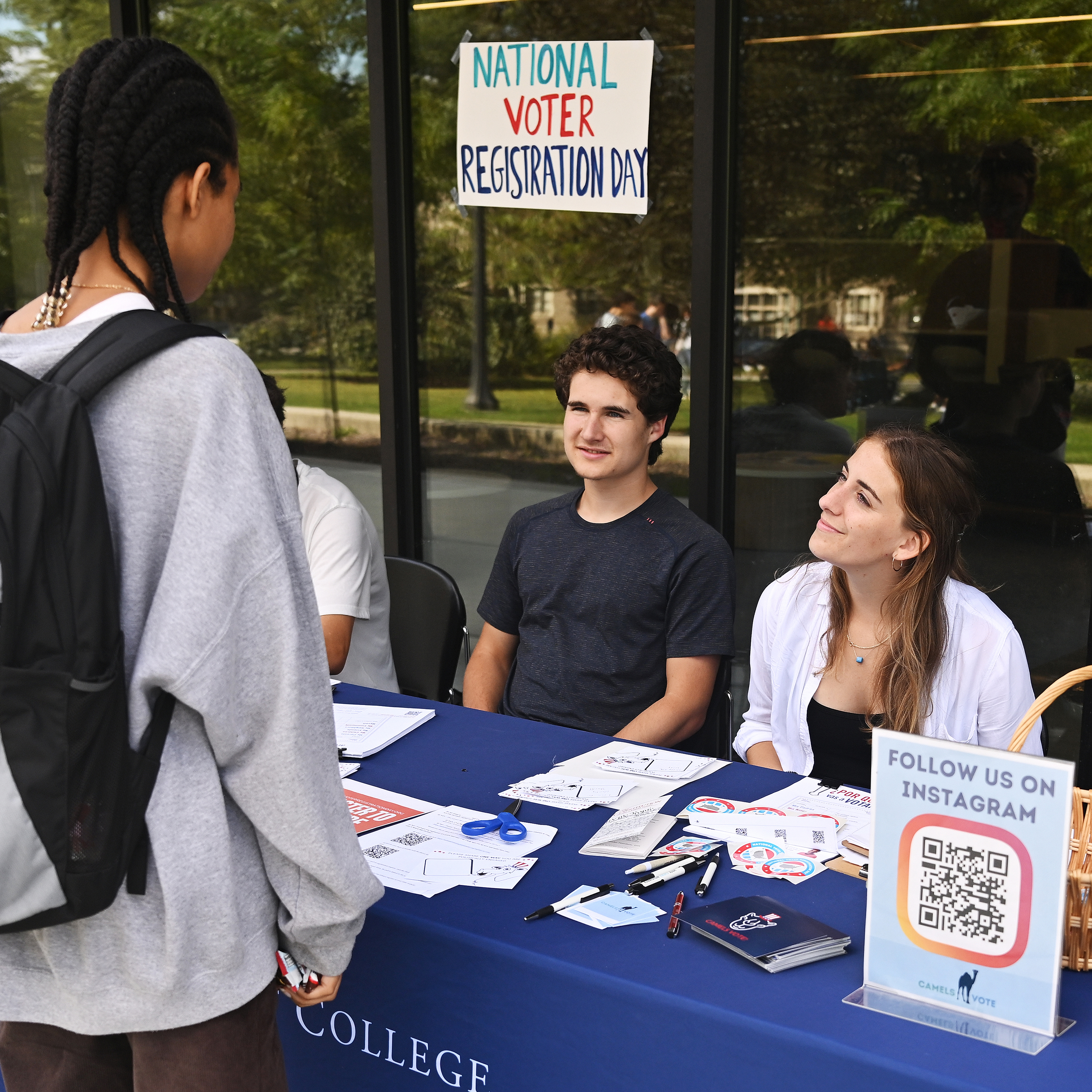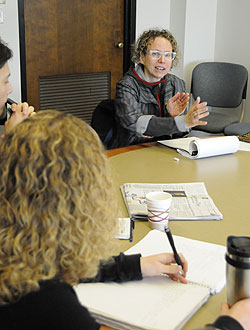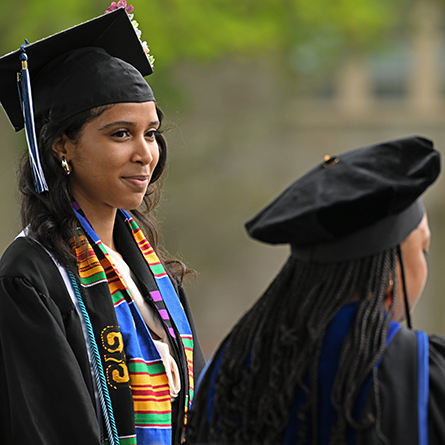
Filmmaker Jennie Livingston 'infuses film studies with energy and wit'

Filmmaker Jennie Livingston leans toward Matthew Gentile '12 as he explains why the narrator of the documentary "That's My Face" seems pretentious.
When he's finished, she sits back and thinks for a moment. She leans in again, intrigued.
"What about my movie?" she asks him, referring to a project still in the works. "It's a similar style. Does it come off as pretentious?" She looks around the boardroom-style table at the other five students in the small classroom. "You have to tell me," she urges them. "I still have time to change it!"
Livingston is the quirky American director and independent filmmaker well known for her 1990 documentary "Paris is Burning," a film about the New York gay and transgender black and Latino ball culture that won the 1991 Sundance Grand Jury Prize. This semester, she is also a visiting professor at Connecticut College.
"She has infused film studies with energy and wit, and is giving students a glimpse of the independent film industry from an insider's perspective," Professor Nina Martin, director of the College's film studies program, said.
As the first Fran and Ray Stark Distinguished Guest Resident, Livingston is teaching two classes: "Screenwriting" and "Independent Film," the latter of which has never before been taught at the College.
"We've had the opportunity to look at the business aspect of filmmaking, as opposed to the theory side, which has been very interesting," film studies major David Kelley '11, a student in Livingston's "Independent Film" class, said.
Environmental Studies major Emily Conrad '11, who recently declared a minor in film studies, says the class has opened her eyes to a whole new genre of film, and the discussions have helped her grasp the true breadth of diversity within the medium. But her favorite part of the class is Livingston.
"It's really exciting to hear her personal experiences," Conrad said. "She has showed us her work in progress and some never-before-seen pieces. The first day of class, everyone just peppered her with questions about what it's like behind the scenes, and she is very open about everything."
Livingston says she encourages the students to ask questions they can't when they watch filmmakers talk about their work on YouTube, or that they wouldn't necessarily think to ask during a Q&A with a director after a film screening.
"Having prolonged contact with a filmmaker - one whose primary activity is filmmaking, but who also enjoys thinking about the ideas, philosophies, processes and social and psychological components of filmmaking - gives the students a really different perspective," she says.
It's an engaging perspective. The students are captivated when Livingston tells a story about an experience with a representative from the Australian Film Commission at the 2005 Berlin Film Festival, and they seem star struck when she casually mentions talking to the directors of Quinceañera at Sundance. One student can't contain his excitement when she announces that, as part of her residency, she has arranged for Academy Award-winning animator John Canemaker to screen his work and host a Q&A on Dec. 2, and "Wendy and Lucy" filmmaker Kelly Reichardt to visit campus Dec. 15.
"How do we get these people?" he asks.
She smiles. "I call them! I send them an e-mail."
Livingston will also share her work with the community. She will screen her films, "Paris is Burning" and "Who's the Top?" Nov. 19 at 7 p.m. in Evans Hall, Cummings Arts Center. The screenings will be followed by a Q&A with Livingston. The event begins with a reception at 6 p.m.
"Both films are gorgeous," Professor Martin says. "Connecticut College is critically invested in issues of diversity and engaged in many conversations regarding the blurred lines between fiction and non-fiction, and these films contribute greatly to these discussions."
Livingston says it is interdisciplinary discussions like these that make a liberal arts education ideal for filmmaking. "What are you going to tell stories about," she asks, "if you don't know history, literature, art, architecture, anthropology, sociology, cultural studies, language, etc.?"
And teaching at a liberal arts college has benefits for filmmakers, too, Livingston says. "It's also an honor and a privilege to explore cinematic ideas in the safety of a college environment," she said. "It gives me a chance to evaluate some films and some structural and aesthetic principles I care about, and to remember why I do what I do."
November 17, 2010
